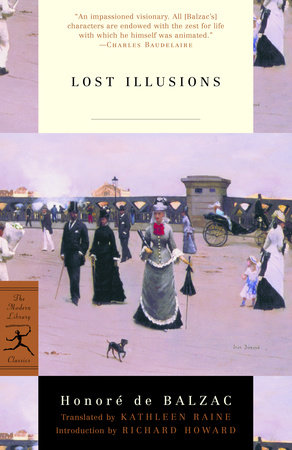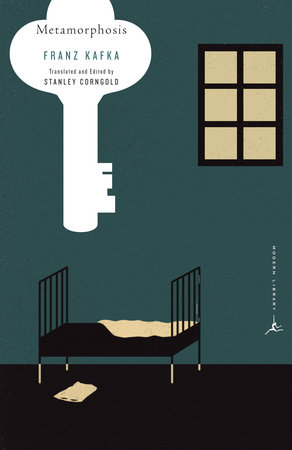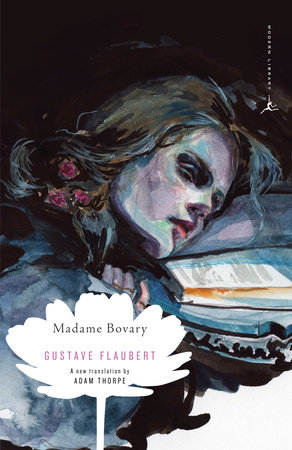Excerpt
Lost Illusions
At the time when this story opens, the Stanhope press and the ink-distributing roller had not yet come into use in small provincial printing- houses; and, notwithstanding its paper industry, that linked Angouleme so closely with Paris printing, wooden presses-of the kind to which the figure of speech "to make the press groan" was literally applicable-were still in use in that town. Old-fashioned printing-houses were still using leather ink-balls, with which the printers used to ink the type by hand. The movable tables for the formes of type, set ready for the sheets of paper to be applied, were still made of stone and justly called marbles. The rapid spread of machine presses has swept away all this obsolete gear to which, for all its imperfections, we owe the beautiful books printed by Elzevir, Plantin, Aldus Didot, and the rest; so that some description is necessary of the old tools to which Jerome-Nicolas Sechard was almost superstitiously attached, for they play a part in this great story of small things.
Sechard had been a journeyman printer, a "bear", according to compositor's slang. The movement to and fro, like that of a bear in a cage, of the printers coming and going from the ink-table to the press, from the press to the table, no doubt suggested the name. In revenge, the "bears" used to call the compositors "monkeys keys", because of those gentlemen's constant employment in picking out letters from the hundred and fifty-two compartments of the type cases. In the disastrous year of 1793 Sechard, who was about fifty at the time and a married man, was passed over in the great conscription which swept the bulk of the workmen of France into the army. The old pressman was the only hand left in the printing-house when the master (otherwise known as "the boss") died, leaving a widow but no children, The business seemed on the point of closing down altogether. The single-handed bear could not transform himself into a monkey, for, in his capacity as pressman, he had never learned to read or write. But, regardless of his incapacities, a Representative of the People who was in a hurry to spread the good tidings of the Decrees of the Convention issued a master-printer's licence to Sechard and requistioned the press. Citizen Sechard accepted this dangerous patent, compensated his master's widow by giving her his wife's savings, and bought up the press at half its value. But that was only the beginning; he was faced with the problem of printing, quickly and without mistakes, the Decrees of the Republic. In this dilemma, Jerome-Nicolas Sechard had the good luck to meet a nobleman from Marseilles who did not want to emigrate and lose his estate, nor, on the other hand, to be discovered and lose his head, and who in consequence had no alternative but to earn a living in in some kind of manual work. M. le Comte de Maucombe accordingly donned the jacket of a provicincial prtiner and set up read, and corrected, single-handed, he decrees that forbade citizens to harbour nobles, on pain of death. The "ber:, now "the boss", printed them off and had them posted up, so that both of them were safe and sound. By 1795 the mad fit of the Terror was over, and Nicolas Secahrd had to look for another jack-of-all trades for the job of compositor, proofreader, and foreman; and an Abbe (he became a bishop after the Restoration),who refused to take the Oath, succeeded M. Le Comte de Maucombe until the day when the First consul restored the Catholic religion. The Count and the Bishop met later when both were sitting on the same bench in the House of Peers.
Jerome-Nicolas Sechard could read no better in 1802 than he could in 1793; but by allowing a god margin for "materials" in his estimates he was able to pay a foreman. Their onetime easy-going mate had become a terror to his monkeys and bears. For avarice beings where poverty ends. From the day the printer saw the possibility of making a fortune sulfites brought out in him a covetous, suspicious, keen-eyed practical aptitude for business. His methods disdained theory. He had learned by experience to estimate at a glance the cost per page of per sheet, in every kind of type. He used to prove to his illiterate customers that big letters cost more to move than small; or if they wanted small type, that small letters were more difficult to handle. Compositing was the process in printing about which he knew nothing, and he was so frightened of cheating himself over that item that he always piled on the price. If his compositors were paid by the hour, he never took his eyes off them. If he knew that a manufacturer was in difficulties, he would buy up his paper stocks cheap and store them. He owned, besides, by this time, the premises in which the printing office had been housed from time immemorial.














